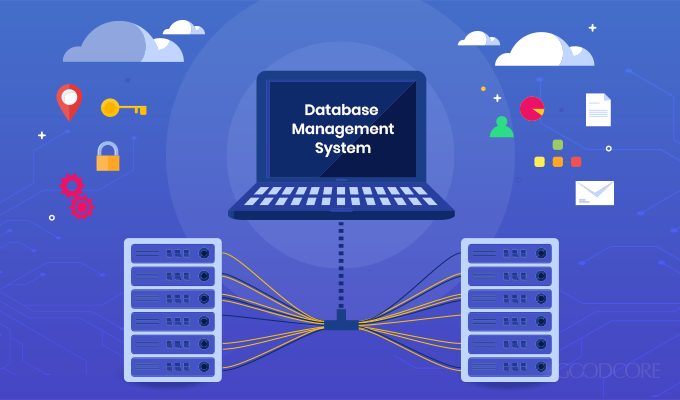How does patient’s database help in medical field?
By: Zhiwa Ismail Date: 05-Feb-2020
If you have ever been to an emergency department, you probably have an idea of what it looks like. Its intensive atmosphere makes it appear more like a battlefield where everyone is trying to win their battle. Hundreds are being admitted in hospitals every day and practitioners must learn and remember a lot about each patient in order to do the right thing. This is not as simple as it sounds, but rather requires a lot of effort and harder than one could bear. That is exactly the reasons that made the use of "patient's database" a necessity in health care.
A Patient’s database is a detailed health record of a patient that has been provided by the patient’s health practitioner. There is various important information that must be provided in the database, for instance:
- Patient's Demographic data.
- Contact information.
- Surgical operations.
- Medical history.
- Current psychological and physical conditions.
The concept of the patient's health record began to appear in the 1970s to improve health care and efficiency in hospitals and certainly, it was a great success. At the early stages of the invention, the concept used papers and documents to record the data, which was slow and loss of data was viable, as well as the clinician had recording limitations. In the present-day, our world revolves around digital technology and has changed many things for the better, including recording patient's health. Nowadays many hospitals and clinics make use of Electronic health records "EHR", which is a digital version of a patient's health record that allows access to authorized users anywhere at any time and shared by multiple physicians of more than one health center. The electronic health record is a renovation and a substituent of the patient's paper-based records that can be constantly updated and have improved the overall efficiency in hospitals. Unfortunately, in less technologically civilized countries such as Erbil in Kurdistan, most hospitals are not yet introduced to this wonderful technology that has the ability to dramatically elevate the entire country’s quality of health care.
The Standing Tech company is a company located in Erbil, Kurdistan. Primarily made of a group of specialized, skilled engineers and business analysts that are willing to provide you with the latest, high-quality information technology services. Standing tech can create and set the “electronic health record” system for local and private hospitals with the best quality, making hospitals more efficient, safe, error-free and creating a revolution in the health systems of the area.
Standing tech will now refer to some of the many benefits of the patient’s health record in improving health maintenance:
Health-related researches
Medical researches often require wide-reaching data and information for investigation and researches that allow us to deal with more chronic conditions. Without these researches, many of the today’s cures and medicines would not have existed. Recorded health data of patients play a significant role in providing these data and enable researchers to set foot on a massive amount of information without much effort. Scientists can use the patient’s data to learn about a condition accompanied by age, gender, and some other important information without bothering the patient at all. They can as well get updates electronically without being present at the clinical site. This has made an entire evolution in the world of medical researches and changed it for the best. Patient’s database, electronically or paper-based, has assisted a lot of medical research in the past years and will continue to. There might be some ethical and privacy violation issues, but they are usually resolved.
Better communication between patients and healthcare providers
A patient's database certainly improves communication between the patient and the physician. Since the database provides more information than the patient could tell, it's easier and more open for the health practitioner to connect to this information and make sense out of it, leading to a more accurate diagnosis and prescription. On the other hand, direct access of the patient to his own health record through "EHR" further educates the patient about his or her condition. This results in a better understanding and cooperation between the patient and the health-care provider as well as it helps the patient to learn more about their illness and ways to look after themselves for a quicker recovery.
Reducing medical errors
At one point in our lives, we all must have faced something wrong in the hospital, whether it was a misdiagnosis, a wrong prescription or even as far as a wrong-site surgery. According to a recent study done by Johns Hopkins, medical errors are now ranked as the third cause of death in the United States. Well, every human makes mistakes, and doctors are no exception. However, most of these mistakes are not caused by recklessness or inattentiveness of the physicians but rather caused by inaccurate data, faulty systems, and unclear communication between the clinician and the patient. Many health centers now use “Electronic health records” that organizes information and makes it easier to access the patient’s data. It provides a vast amount of information, among them are laboratory tests, history of family health statue, allergies, and currently prescribed drugs. This can largely reduce many medical errors such as adverse drug reactions, duplicated tests and faulty diagnoses and treatments. These errors are unlikely to happen and largely avoided if your doctor has a copy of all these ready on his desk.
Providing safety
Suppose that you have been suffering from several symptoms for a while, and it has been challenging for the doctors to diagnose your condition. You have been shifting from one doctor to another each with different prescription and treatment. Now you want to visit a new doctor hoping he would help, well he probably will ask you to fill out a form to record all previous treatments, tests, diagnosis and medications prescribed. Just thinking about it makes one dizzy, not to mention all the terrible coincidences that could result if you miss out a piece of information or worse of all, make up false ones. In technologically civilized regions, these sorts of accidents are minimized since you don't really need to say anything to your doctor, your health record will say it all. Your previous doctor can simply send all the data your new doctor will need such as tests, prescriptions, allergies, family history of disease and the surgical operations taken. By using the patient’s health record, risks of various accidents are reduced, and data are more reliable. This way patients feel more secured, provided with ultimate safety. The old paper-based records are as well useful. But it consumes time and money and more vulnerable to mistakes elevating risks of errors.
Improving efficiency
In populous cities such as Erbil in Kurdistan, it’s unbearable to keep track of time and data due to overloading in emergency units or local hospitals. Health centers using electronic health records can save a lot of time, money and promote better coordination in hospitals. Multiple clinicians can access to your records, which allows them to communicate with each other by direct update of results and diagnosis. This cuts down on unnecessary tests or duplicated tests, as well as enabling physicians to spend less time with each patient by reducing the time spent in waiting for reports and results. Accessing to a patient's history of clinical data allows a more precise diagnosis and less need for repeating some of the medical procedures. By doing so, physicians can see more patients and facilitates health care in hospitals.
Cases of emergency
If health centers in your country rely on electronic health record "EHR" then you are very lucky, because it could just be the line between your life and death one day. After having a terrible accident or getting injured during a natural catastrophe such as an earthquake, many people panic and find it hard to remember many details about their life, health, or worse of all, could even tell misleading information. Accessing one's "EHR" in these situations is very helpful and guarantees the reliability of the data. Thereby, doctors don’t have to squeeze out information from patients, and the fear of whether the patient has any lethal allergy to a certain drug or learn about their blood group during blood transfusion. This encourages physicians to take the right action before it’s too late.
To sum things up, a patient's health record provides accurate data, efficient care, reliable information, enhances communication, coordinates hospitals, saves money and time, and improves the overall quality of healthcare. This makes the use of the patient's database an obligatory and have helped physicians to make more informed decisions and diagnosis for decades. It’s believed that the future brings much more progress to the recording of patient's health, making use of artificial intelligence and robots. Let's just hope that this will be a better version and improve the quality of health care even further.
REFERENCES:
- https://www.ncbi.nlm.nih.gov/pmc/articles/PMC5707430/
- https://www.ncbi.nlm.nih.gov/pmc/articles/PMC6118867/
- https://en.wikipedia.org/wiki/Electronic_health_record
- https://en.wikipedia.org/wiki/Medical_error
- https://www.healthit.gov/faq/what-are-advantages-electronic-health-records
- https://www.ncbi.nlm.nih.gov/books/NBK430763/
- https://www.nature.com/articles/d41586-019-02876-y


